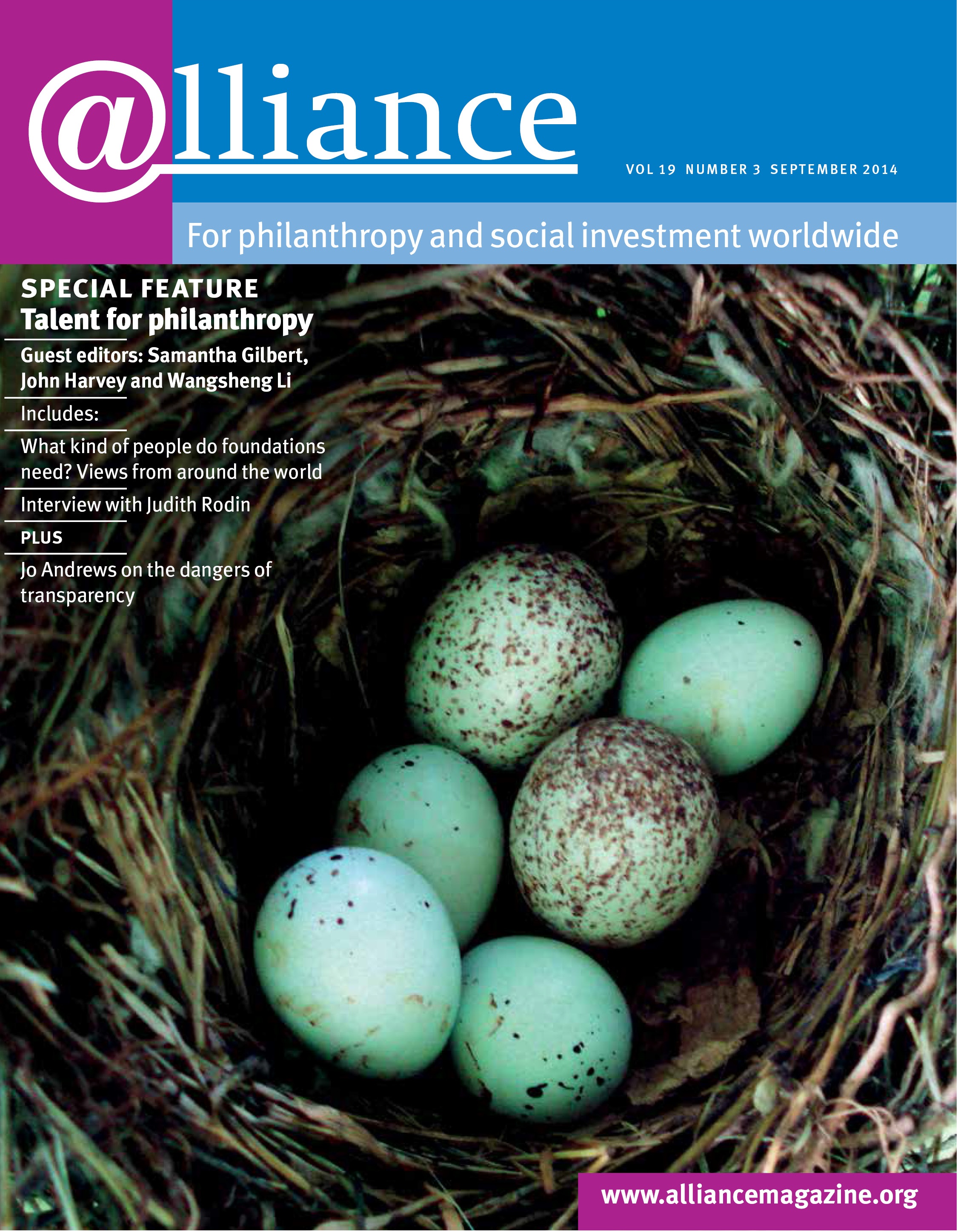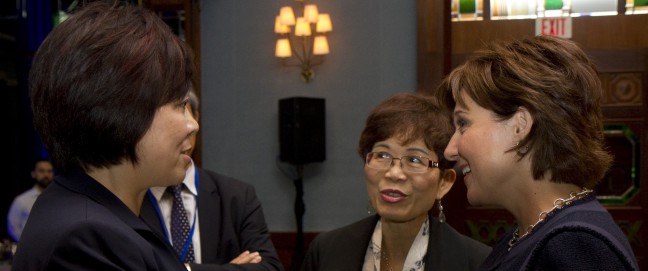As in the business world, philanthropic activities have become increasingly international, with project teams spanning Africa, Asia, the United States or Europe becoming the norm. However, research from the business world suggests that many such teams are not as effective as they should be. Many executives are not internationally effective, lacking the necessary sensitivity and in-depth cultural understanding. In a team, this problem is clearly compounded. What can organizations do to develop high-performance global teams and increase the chances of success?
In my view, there are three areas to address: being more astute and systematic in the selection of leaders; developing individual executives better; and focusing on a team approach that links the psychology of the team with the strategy.
Executives who are successful in international work have common characteristics: they are curious about other cultures; they enjoy complexity and can deal with the ambiguity of international work; they are flexible in their approach and have an appreciation for diversity in its widest sense. They are resilient, with strong interaction skills.
Many difficulties in international projects are due to the inability of individuals and teams to deal with ‘culture shock’ or the experience of foreignness. International executives and teams have to deal with three main areas of culture shock:
- Emotions: managing the stress of international work.
- Thinking: moving away from stereotyping.
- Social skills: developing cross-cultural sensitivity.
The Culture Shock Triangle[1]provides a psychological and pragmatic framework for leadership development. International work elicits a huge range of emotions, including excitement, frustration, anger and depression. Culturally effective executives learn to manage the stress involved, circumvent the problem of stereotyping and refine their thinking. In project work, we need to establish quickly whether our international colleague has a similar approach to ours or a very different one.
Key questions to ask are:
1 Is the focus in his/her culture primarily on the task at hand or on people? Some cultures are traditionally more individualistic and very task-focused whereas others are more collectivist and more people-focused.
2 Are frameworks/processes more important than flexibility? Some cultures value frameworks and processes whereas others prefer a fluid and changeable approach.
3 What is the dominant communication style? Is an emotional presentation valued or not?
This last point illustrates that we need to learn different social codes of what is acceptable. Similar to learning a new language, international executives need to expand their ‘behavioural repertoire’. My research and consulting experience has shown that people who are successful in international work are those who continuously work on their international literacy, particularly when leading international teams.
Successful international teams manage the three areas of the Culture Shock Triangle and focus on the link-up of their capabilities with the strategy. Aspects to check are:
- Does the team have a sufficient understanding of global issues in the projects they are working on?
- Is there agreement on strategy?
- Is the strategy specific enough?
- Is there a shared understanding of how to implement the strategy?
- Are there common expectations of performance and communication?
A global team can be effectively developed and its performance demonstrably accelerated by the dual focus on psychology and strategy.
To determine whether you have high-performing international teams in your organization, it may be useful to check the following key characteristics of such teams:
- a high level of engagement and real debate;
- diverse perspectives and conflicts seen as positive;
- high empathy level in the leader and team members;
- positive mood, drive and optimism;
- trust and engagement beyond one’s formal role;
- a team leader with a clear understanding of different motivations and cultural differences of each team member;
- a high proportion of positive interactions.
Some philanthropic organizations have started to follow the best practice approach of the business world and are actively developing international leaders, sometimes with the help of external coaches. This is something the philanthropy world mayneed more of.
1 E Marx (2001) Breaking Through Culture Shock: What you need to succeed in international business London: Nicholas Brealey.
Dr Elisabeth Marx is a partner at Stonehaven Search, London. Email EMarx@stonehavensearch.com
This article is based on her book The Power of Global Teams (Palgrave MacMillan, 2013).







Comments (0)